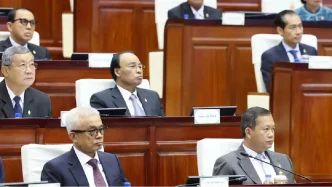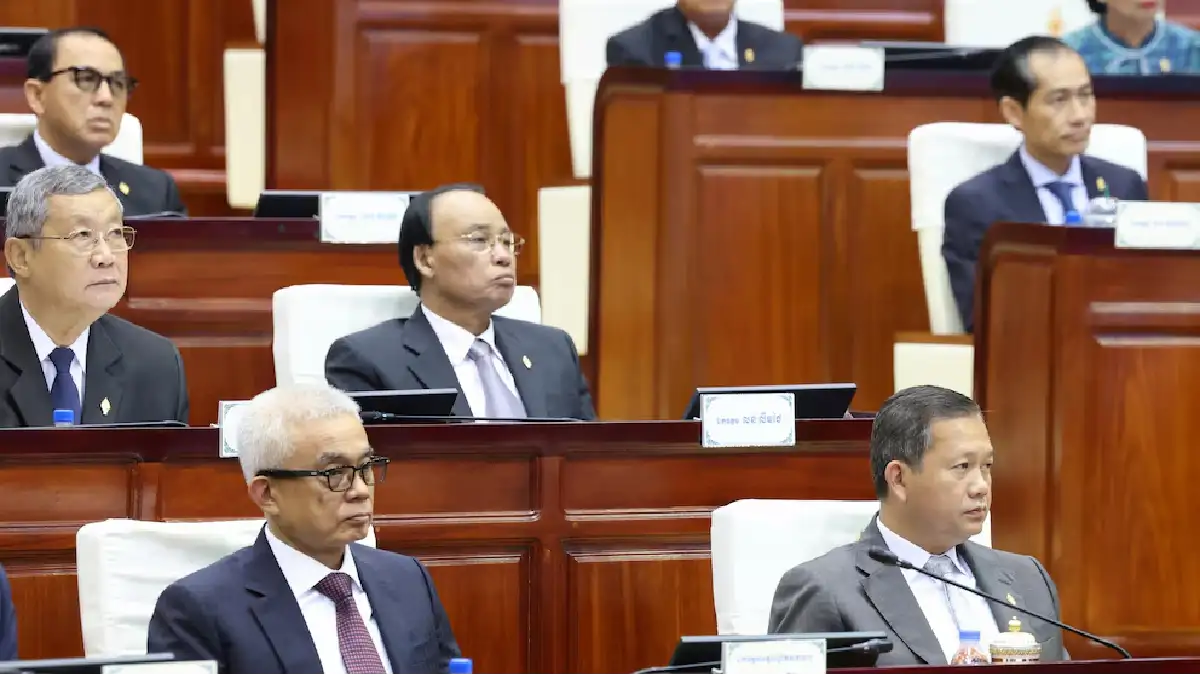A proposed law that would enable the revocation of Cambodian citizenship under specific circumstances has passed a significant hurdle in the National Assembly, igniting a fierce debate over national identity, security, and individual rights. The draft legislation, which aims to address concerns over dual citizenship and national loyalty, has drawn both support and criticism as it moves closer to becoming law. With implications for thousands of Cambodians, particularly those with ties abroad, the bill raises questions about the balance between state authority and personal freedoms in a nation still grappling with its post-conflict identity.
A Legislative Push for Control
The Cambodian National Assembly recently voted in favor of the draft law, which would grant the government the power to strip citizenship from individuals deemed to pose a threat to national security or who hold dual citizenship in violation of existing regulations. While the specifics of the bill remain under discussion, it is understood to target those who may have acquired foreign citizenship without renouncing their Cambodian status, a practice currently prohibited under the country’s constitution. The legislation would also reportedly allow for citizenship revocation in cases of alleged disloyalty or actions against the state, though exact criteria remain unclear.
Supporters of the bill argue that it is a necessary measure to protect Cambodia’s sovereignty and ensure loyalty among its citizens. Government officials have pointed to the risks posed by dual citizens who may prioritize foreign interests over national ones, particularly in a region marked by geopolitical tensions. The move is also seen as part of a broader effort to strengthen national identity, a priority for the ruling Cambodian People’s Party (CPP) as it seeks to consolidate power ahead of future elections.
However, the lack of transparency around the bill’s provisions has fueled concerns. Critics warn that the vague language surrounding “threats to national security” could be exploited to silence dissent or target political opponents. In a country with a history of restricting free speech and opposition voices, the proposed law has raised alarms among human rights advocates who fear it could become a tool for repression.
Historical Context and Regional Comparisons
Cambodia’s complex history adds layers of significance to the debate over citizenship. Decades of conflict, including the Khmer Rouge regime’s brutal reign from 1975 to 1979, left deep scars on the nation’s social fabric. During that period, millions were displaced, and many Cambodians fled to neighboring countries or sought refuge abroad, particularly in the United States, France, and Australia. As a result, a significant diaspora community holds dual citizenship, often as a means of maintaining ties to both their homeland and their adopted countries.
The proposed law’s focus on dual citizenship has struck a nerve among these communities, many of whom contribute to Cambodia’s economy through remittances and investments. For some, the legislation feels like a rejection of their identity and a betrayal of their efforts to rebuild connections with their ancestral homeland. Others worry that the law could disproportionately affect ethnic minorities, such as the Vietnamese-Cambodian population, who have long faced discrimination and accusations of divided loyalties.
Regionally, Cambodia’s move mirrors similar policies in other Southeast Asian nations, where citizenship laws are often tied to national security concerns. In Malaysia, for instance, dual citizenship is strictly prohibited, and the government retains the right to revoke citizenship under certain conditions. Thailand, too, has grappled with issues of border communities holding dual status, though it has not pursued mass revocations. Cambodia’s proposed law, however, appears to go further by introducing broader grounds for stripping citizenship, a step that some analysts see as aligning with the government’s increasingly authoritarian stance.
Human Rights and Legal Implications
One of the most contentious aspects of the draft law is its potential to render individuals stateless, a condition that violates international human rights norms. The Universal Declaration of Human Rights and the 1961 Convention on the Reduction of Statelessness, to which Cambodia is a signatory, emphasize the right to a nationality and urge states to avoid actions that leave people without legal identity. Critics argue that revoking citizenship without guaranteeing an alternative nationality could trap individuals in a legal limbo, denying them access to basic rights such as education, healthcare, and travel.
Legal experts have also questioned whether the proposed law complies with Cambodia’s own constitution, which guarantees certain protections for citizens. Without clear safeguards or an independent judicial process to oversee revocation decisions, there is a risk that the law could be applied arbitrarily. Human rights organizations have called for greater public consultation and transparency before the bill is finalized, urging the government to consider amendments that would protect vulnerable groups.
The international community, too, has taken note. While no formal statements have been issued by major powers or regional bodies like ASEAN, diplomatic sources suggest that Cambodia’s partners may raise concerns if the law is perceived as undermining democratic principles or targeting specific ethnic or political groups. For now, the government appears determined to push forward, framing the legislation as a matter of national sovereignty rather than international obligation.
Public Sentiment and Political Ramifications
Public opinion on the proposed law is divided, reflecting broader tensions within Cambodian society. In urban centers like Phnom Penh and Siem Reap, where exposure to global influences is greater, many express unease about the potential for abuse. Younger Cambodians, in particular, view the bill as a step backward at a time when the country is striving to modernize and integrate into the global economy. Social media platforms have seen an uptick in discussions, though direct criticism of the government remains cautious given the country’s strict laws on dissent.
In rural areas, where nationalistic sentiments often run stronger, some view the law as a necessary defense against foreign interference. For these communities, the idea of loyalty to the state resonates deeply, shaped by decades of war and external threats. Yet even here, there are whispers of concern about how the law might be implemented and whether it could be used to settle personal or political scores.
Politically, the bill is likely to bolster the CPP’s image as a protector of Cambodian identity, a narrative that has long underpinned its dominance. With the opposition Cambodian National Rescue Party (CNRP) dissolved in 2017 and its leaders either exiled or imprisoned, there is little formal resistance to the legislation within the National Assembly. However, the move could galvanize underground opposition movements or diaspora activists, who may see the law as further evidence of democratic backsliding.
Looking Ahead: Identity in Flux
As the draft law moves toward final approval, its long-term impact on Cambodia’s social and political landscape remains uncertain. Will it strengthen national unity, as its proponents claim, or deepen divisions by alienating segments of the population? The answer may depend on how the government chooses to enforce the legislation and whether it can address the legitimate concerns of its critics.
For now, the debate over citizenship is a microcosm of larger questions facing Cambodia: how to define national identity in a globalized world, how to balance security with individual rights, and how to heal the wounds of a tumultuous past while building a future that includes all Cambodians. As the National Assembly deliberates, the eyes of both citizens and the international community remain fixed on Phnom Penh, watching to see which path the nation will choose.















